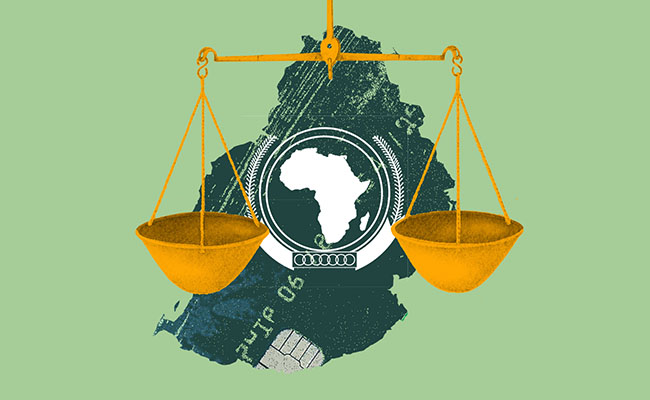A big focus of South Africa’s hosting of the G20 has been how to resolve the “prejudice premium” apparently incorporated into African debt, and one of the proposed solutions is a new African ratings agency, which is due to open mid-2026. But African economists are sceptical that merely starting a new agency will shift the needle, and question whether the problems actually lie elsewhere.
The new ratings agency, the Africa Credit Rating Agency, has been initiated by the AU, and it will be hosted in Mauritius. It’s billed as a continent-wide initiative designed to provide alternative assessments of repayment risk, and it will be an African-owned, private sector entity that operates independently.
The so-called “prejudice premium” was the focus of a panel of Africa experts who urged the Group of 20 major economies to step up oversight of credit ratings agencies, which they accuse of using flawed and opaque methodologies that increase borrowing costs for African governments.
The panel, established under South Africa’s G20 presidency, was chaired by South Africa’s former finance minister Trevor Manuel, and its members include Nobel laureate economist Esther Duflo and former African Development Bank president Donald Kaberuka. According to the panel’s report, ratings agencies exhibit “perception biases”, often assessing African risk as higher than other regions with comparable economic fundamentals.
The findings of the report do have some independent substantiation. A recent Bloomberg article quoted the Africa Finance Corporation, a development bank, calling it a “prejudice premium”, and estimating that the continent spends as much as $75bn a year in additional borrowing costs.
A July study by the International Monetary Fund found that Sub-Saharan African nations pay about half a percentage point more in the bond market than similarly-rated countries, and that it tends to increase during times of stress. But it also said the premium vanishes once issues like governance and budget transparency are taken into account.
Factually, the continent’s average eurobond spread – the extra interest (yield) that a country or company must pay on its eurobond compared to US treasury bonds of the same maturity – is higher than other regions, and has been for years.
‘Not perception issues’
However, in an interview, Michael Hewson, CEO of transfer-pricing advisory firm Graphene Economics, says a proposed African credit ratings agency is unlikely to solve the continent’s borrowing-cost challenges unless the underlying economic and structural fundamentals improve.
Hewson works with multinationals across the continent and sees firsthand how sovereign credit ratings shape investment decisions, borrowing costs and the tax revenues governments can expect from corporate profits.
Hewson argues that African sovereign ratings are low for reasons that have little to do with who is doing the rating. “We can set up a new African ratings agency tomorrow, but unless fundamentals improve – political stability, macroeconomic management, liquidity – nothing really changes,” he says.
Countries such as Ghana, Malawi and Kenya have struggled with defaults, currency crises and political volatility. Others face chronic shortage of foreign-exchange reserves, making it hard for companies to repatriate profits. Ethiopia, Nigeria, Ghana and Zimbabwe have all experienced multi-year backlogs in foreign-currency availability, severely raising operating risk.
“These are not perception issues,” Hewson says. “They are fundamental challenges.”
It’s not that the problem being highlighted is small, he says. Even when multinationals have strong balance sheets and global credit standings, their African subsidiaries are automatically capped by the sovereign rating of the host country. A London-listed mining house may be investment-grade globally, but if it operates in a sub-investment-grade African country, its local borrowing cost is priced off the host sovereign.
“That alone drives up interest expenses, reduces profitability and ultimately lowers tax collections,” Hewson notes.
The data deficit
Perhaps the largest obstacle to a credible African ratings agency is the severe shortage of reliable corporate and financial data. In most developed markets, private companies are legally required to file financial statements in central registries. Those registries sell data to financial-information providers, giving ratings agencies deep, statistically rich datasets.
Africa does not have this infrastructure. “There are almost no accessible data points for private firms across Africa,” Hewson says. “Benchmarking profitability, credit risk or financial performance becomes guesswork.”
This data vacuum affects everything from credit modelling to interest-rate benchmarking. It is also why African corporates pay higher spreads – ratings agencies simply have too little information.
The Bloomberg article quotes FirstRand chief economist Isaah Mhlanga making the same point: “We don’t have as much data in Africa … my speculation is that when investors don’t have that data, they add a little premium.”
This is not, however, preventing borrowing costs in Africa from declining: many have fallen sharply in recent years, helped by policy action like Nigeria’s decision to unify its exchange rate and interest-rate cuts in the US and Europe.
In South Africa last week, S&P raised the country’s credit rating for the first time since 2005, underscoring its progress in bringing down inflation and improving economic growth. The yield on 2035 government bonds has fallen to 8.57%, the lowest since the securities were issued in 2015, Bloomberg points out.
Recent eurobond sales for Nigeria and Kenya were five times subscribed, a sign of strong investor demand that allowed them to lower their borrowing costs. Nigeria paid 8.625% for 10-year debt this month, compared with 10.375% in December.
But Hewson adds: “You cannot build sophisticated credit-risk models without data. And a new ratings agency won’t magically create that data.”
He agrees that better and more local data could help refine the understanding of African risk. An African ratings agency could play a role if it improves the depth and accuracy of information available.
The idea of an Africa-based credit ratings agency has been politically appealing for years. But Hewson says the real work must happen elsewhere: improving macro-economic stability, enforcing financial disclosure rules, building deeper capital markets, and strengthening institutions.
Until then, the ratings won’t move – no matter who issues them.
Top image: Rawpixel/Currency collage.
Sign up to Currency’s weekly newsletters to receive your own bulletin of weekday news and weekend treats. Register here.













